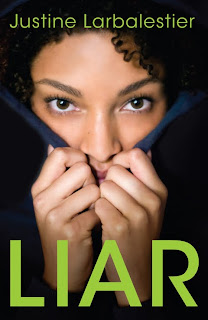 Peeps by Scott Westerfeld
Peeps by Scott WesterfeldADD-friendly review: Vampire books are all the rage, especially for YA, but Peeps somehow manages a balance between disgusting detail and hormone-fueled sexiness that transcends the genre. It's more biology than mythology and more intent on saving the world than biting necks, and Westerfeld peppers it with the snappy repartee he's known for. It's fast-paced and gross, but a nice departure from sparkling pale chests and moping. The saving-the-world plot takes the place of what I was hoping for the book to be, though.
Okay. Bigger bites, more to chew on: I think the whole vampire thing works well for YA because it's a perfect analogy for hormones, bodies changing and feeling like something else is taking control. Twilight (which, full disclosure, I read half of before I had to stop) didn't take advantage of this - those vampires were already 400 years old and the angst came from love, not a changing physique and desire that you don't quite understand - and it was worse off for it. Peeps doesn't let anything like love stop it from being a disgusting romp through Westerfeld's version of vampire lore: basically, vampirism is an STD, and our protagonist, Cal, is infected.
Plot: Cal is a Peep hunter - he has the vampire parasite but none of the symptoms. His appetite is uncontrollable (thanks to the parasite wanting to feed itself) and his sexual drive is hard to control (thanks to the parasite wanting to spread) but he has been conscripted, due to his mild immunity to fight off people that have been infected by the parasite and turn cannibalistic. And it starts with finding his ex-girlfriends, who he unwittingly infected. From there, its huge revelation after huge revelation, until it seems that Cal is fighting something bigger than vampires.
More: I did not read this book in one go. I am not always a squeamish reader, but every other chapter is a factual account of some terrifying parasite. Hookworms, mealworms, toxoplasma... It's all very squirm-inducing. So I sort of put it down for a bit. But I picked it back up to see if I could make it through a vampire novel. Scott Westerfeld is a big idea sort of writer - his characters have to save the world. Or start saving the world. Or keep the world from needing to be saved. And while I loved that for the Uglies saga, and I love that for Leviathan, Peeps' end-of-days wasn't as interesting as the inner turmoil and guilt of his main character infecting the women of his life that Westerfeld could have focused on.
Should you read it? I remain unconvinced. The concept is bang-up exciting, and the neat metaphor of vampirism as an STD remains an "I wish I thought of that." But Westerfeld has better books out there. If you're looking for a different take on vampires, or want to learn about parasites without awful pictures, then perhaps you'll love it. I just wanted something different from it than the book had to offer.





